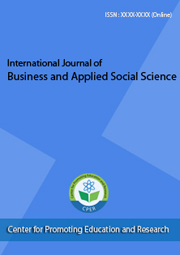current
Table of Contents
Articles
Abstract:
Remote work is a work pattern adopted in various organizations as an advancement of technology and an application of digital transformation. Remote work has many advantages that contribute to both employees and organizations. It allows flexibility and increases productivity besides many other benefits. However, remote work also has some challenges such as culture and reachability that need to be considered. Remote work is a significant change in employees’ pattern of work where they will have more autonomy and responsibility. Additionally, employees will be more reachable and they might work longer hours. Thus, all of this might contribute to substandard practices of remote work where its stereotype becomes negative. Literature has shown that some organizations have decided to return to office as a result of the substandard practices. Therefore, this research is motivated to understand the practices of remote work in Saudi Arabia’s public sector. This research found that the public sector relies heavily on technology. However, as a formal work pattern, only three organizations allow remote work. That said, employees become reachable more than ever when they are asked and contacted after working hours. This has resulted in a new finding that remote work might not be an official work pattern, but employees could work remotely after official working hours. This research has also found that the practices of remote work are substandard. Employees’ culture is behind and they misuse the concept of remote work. In addition, there is a lack of remote work policy which leaves a space for individuals and subjective decisions that might contribute negatively to remote work experience.






